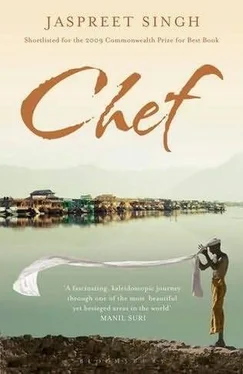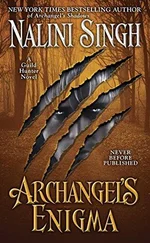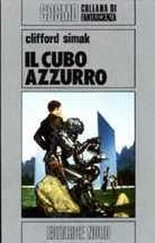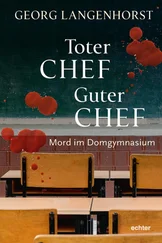I did not know how to respond to this man. He was not very young, in his late twenties perhaps. The moment he broke down all the laughter in the tent ceased, and people stopped eating, and we were no longer able to talk about the red-light district of Bombay: about Kamathipoora, where Pal and Thapa had picked up gonorrhea (at first they feared it was HIV), and where Inder had slept with the impotent ship captain’s pretty wife.
Flipping through these pages, I say to myself on the window seat of this train, this does not seem like the journal of a man about to kill himself or about to make a serious attempt. In the journal he writes that he admires officers who simply look the other way when men do not follow their orders on the glacier. Siachen is a strange place, he concludes. Bonds between men grow strong here, and they grow very weak, and get blown away by cold winds. If I can admire or pretend to admire the beauty of this icy wasteland, and find poetry in the tents and igloos and seracs and pinnacles and icicles, and the black soot on the walls of the igloos because of kerosene oil bukharis and braziers, and parachutes dropping parts of Bofors guns, and canned food and sheep, if I can admire all these things…
Then suddenly Chef writes about me. It was the second time I found myself written about.
I do not think the boy Kirpal will stay for long. He does not really belong in the army. Kip is fixated on his father. That is why he is in the army. The boy has a sensitive sense of smell – almost like a dog. One day he will sniff out the truth.
One day he will learn that to live properly, one must allow one’s parents to die. Once I saw his father kiss a Kashmiri woman in the Mughal garden. I was on the other side of the fountain – they could not see me. The woman’s face was wet from the mist, she spread a calico sheet on the grass under the plane tree, she sat at the edge of the sheet, hands dangling on her raised knees, she fussed about the embroidered dupatta on her head, tucked neatly behind her ears and falling on both sides of her blue kameez. It was then he took the woman in his arms and turned around to check if someone was watching and once convinced that no one was close by he kissed her. It was brief, but it was definitely a kiss. She pushed him away as if trying to tell him not to take such liberties again, but really she wanted him to do exactly the opposite.
Kirpal’s father belonged to the tradition of officers who were gentlemen. Officers like Maj. Gen. Khanolkar and Maj. Gen. Thimayya, Gen. Harbaksh Singh and Gen. J.S. Aurora. They knew duty, honor, humanity. Officers like him (despite the fact that they succumbed to women during weak moments) are the main reason I am still in the army. Some of our commanders here on the glacier are extremely abusive. They make this hell a bigger hell.
There are no trees here, Chef writes. One day I saw a tree and started walking towards it. But a soldier told me that it was three days away. The captain said that the tree did not exist at all. ‘Go to the CO’s tent if you want to see the real thing. Smaller than the size of your prick, a Japanese bonsai.’
Yesterday I saw a djinn, he writes a week later. He was on a serac, smoking a cigarette. Save me, the djinn cried. I found it difficult to bear his agony. Save me, he screamed. Have you people forgotten how to scream? he asked. Stop it, I said. Stop smoking that bleedy cigarette, I said. Go away, you dwarf. You Ma-chod. Bhaen-chod. Bhon-sadi-day.
This journal has a burnt smell. But.
Flipping through these pages I begin to feel very cold. I am trying to find the precise page, the one I had discovered in the General’s residence, the one which had given me a hint as to why Chef had tried to kill himself:
The soldiers take care of their clothes and bodies. How obedient and patient they are. When they die on duty they bring to their lips the name of their wife or simply ‘O my mother’. I have heard from other soldiers. There are always some who do not return. I cook thinking they will all return. There is always someone who does not. It is hard to throw away the food. At night I hear the missing soldiers’ cries: I am hungry, feed me. There is always a soldier who does not return. Sometimes to forget this hell I recite the comical names of our border posts: Khalsa 1, Khalsa 2, Romeo 1, Romeo 2. I close my eyes and recall all the street names and areas in Srinagar, where our base camp is. Habakadal. Brazulla. Jawahar Nagar. Pantha Chowk. Ganderbal. Raina Wari. Raj Bagh. Badami Bagh. The moment I do so I see the faces of real people, and I am able to endure this hell. Sometimes I hear the whistle of a train approaching. It stops at a platform on the mountains. Kirpal is headed to the Badami Bagh camp. I touch the face of Kip, the boy is standing outside the General’s residence. There is a tenderness in his look. Sometimes I walk by the tents at night and I feel as if we are a wrecked ship, and feel the glacier moving under my feet. Mocking me. My God, where am I?
We are condemned. For us there is no hope. The Pakistanis fire at us from the other side. Are they filled with hope? They are on lower ground than us and yet filled with hope. They believe they will go straight to heaven after they die. When we capture an enemy prisoner I cannot wait to ask him. Tell me, what does your heaven look like? Here, please draw it on this sheet of paper. What food do people eat in heaven?
Everything looks strange, he writes near the end of the journal. The war is over. I am no longer on the Icefields. Back at the base headquarters things make no sense. Men polishing officers’ boots, men playing the brass band, bagpipes, the band master’s baton going up in the air, parade ground, signal center, MT workshop, men playing volleyball, dry canteen and wet canteen, burra-khana and chota-khana, burra-peg and chota-peg, recreation room – nothing makes sense.
The entries from this point are written very very tightly and it is difficult to read them. They are a strange mixture of two-thirds Hindi and one-third Punjabi. His Hindi is superior to his Punjabi.
She cooks me a meal, he writes. The nurse. And while she lays the table I ask – Why do we cling to the Rose Glacier, and why does Rose cling to us?
She does not hear me. While she serves food I begin thinking about the garbage on the glacier. Our shit on the Icefields. Acres of wrecked Bofors guns and American and British weapons. Wrecked vehicles, tanks, jerry cans. What is the name of the wind that blows on the glacier? I would like to know the name of the wind.
Why are you not paying attention to me? she asks. The nurse kisses me. She undoes her blouse. Her breasts fall. I say, I thought you wanted to do it after the meal. She is somewhere behind me now. I see her petticoat string dangling from the empty chair. I turn. My heart is beating fast, fluids are running inside fast. I have not seen a woman’s belly button for an entire six months. I eat her tortellini. I lick her tattoo. But I am not able to get my thing up. In the past I would have had her before the blouse and petticoat came off. This time minutes pass and become hours. I am not able to get my thing up. I am not able to get it up.
She removes her three bangles and her wristwatch. Places them on the side table. Now she is completely naked and is panting like a dog and this arouses me but my thing does not harden. It does not. It is the tail of a dog. Wags a little. Only a little.
She tells me to talk to the doctor. She is a nurse. She knows these things. The next day I sit outside the doctor’s door. But when my turn comes after a long wait I am unable to tell him my problem. Words remain frozen in my mouth. Instead I tell him I feel weak, very weak. He gives me Vitamin C.
For half a day I run along the river, I do not return to the nurse’s quarters, I bike to the houseboat Texas Dawn in the red-light district to do it with a paid woman. The girl I choose is fair and sexy and well-endowed. Her name is Azra or Asma. But. The thing does not work.
Читать дальше
Конец ознакомительного отрывка
Купить книгу












